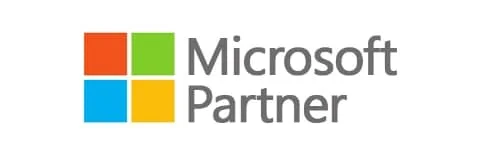
When it comes to managing web hosting and server environments, control panels play a crucial role in simplifying and streamlining the process. Two popular control panels that often come into consideration are Plesk and cPanel.
At GBNetwork Solutions, we provide cPanel and Plesk hosting options, ensuring that you have the flexibility to choose the control panel that best aligns with your specific hosting needs. Whether you prefer the simplicity and security of Plesk or the feature-rich environment of cPanel, our hosting services are designed to accommodate your preferences and requirements. Our offerings include WordPress hosting with Plesk and Business Web Hosting with cPanel, providing you with tailored solutions for your website and business needs. In this blog post, we’ll compare Plesk and cPanel to help you decide which one is the best fit for your hosting needs.
1. Plesk
Plesk is a widely recognized web hosting control panel known for its robust features and user-friendly interface. Here are some key features of Plesk:
Pros of Plesk
- Comprehensive Features: Plesk offers a comprehensive set of features for managing web servers, websites, and applications, including a one-click installer for popular software.
- User-Friendly: Plesk is user-friendly, making it accessible to both beginners and experienced users. It also provides role-based access control, allowing multiple users to manage different aspects of the server.
- Security: Plesk focuses on security with features like automated security updates, a firewall, and Let’s Encrypt integration.
- Extensions: Plesk offers a wide range of extensions and integrations to extend its functionality.
Cons of Plesk
- Cost: Plesk is not free and comes with a licensing fee, which may increase hosting costs.
- Resource Usage: Like cPanel, Plesk can be resource-intensive, which could be a concern for smaller or resource-constrained servers.
2. cPanel
cPanel, as mentioned earlier, is a well-established control panel in the hosting industry. Here are some key features of cPanel:
Pros of cPanel
- Feature-Rich: cPanel offers an extensive range of features and tools for server and website management, including file management, email, databases, and more.
- Large User Base: With a massive user base, cPanel has a vast community, extensive documentation, and a wide selection of third-party plugins and integrations.
- Easy to Use: Despite its extensive feature set, cPanel is user-friendly and intuitive.
- Support: cPanel offers official support options, which can be beneficial when you encounter issues or need assistance.
Cons of cPanel
- Cost: cPanel is not free and usually comes with a licensing fee, which can add to the overall hosting costs.
- Resource Intensive: cPanel consumes more server resources compared to lightweight alternatives, which can be a concern for smaller or resource-constrained servers.
Comparison of Control Panel
Now that we’ve looked at the pros and cons of both Plesk and cPanel, let’s compare them in more detail to help you make an informed decision:
1. User Interface and Ease of Use
- Plesk: Plesk’s minimalistic design and straightforward interface make it a great choice for beginners and those who prefer a clean and simple control panel.
- cPanel: cPanel’s user-friendly interface is well-known for its ease of use, offering a plethora of features without overwhelming users.
2. Features and Functionality
- Plesk: While Plesk offers essential features for server and website management, it may lack some of the advanced functionalities found in cPanel.
- cPanel: cPanel is feature-rich, offering an extensive set of tools for managing various aspects of your hosting environment.
3. Security
- Plesk: Plesk emphasizes security with features like automatic updates and Let’s Encrypt integration, making it a good choice for security-conscious users.
- cPanel: cPanel also provides security features but is often a target for attacks due to its widespread use.
4. Community and Support
- Plesk: Plesk has a smaller user community, which may mean fewer resources and third-party plugins, but it’s an open-source project with an active community.
- cPanel: cPanel boasts a large and active user base, extensive documentation, and official support options.
5. Cost
- Plesk: Plesk is open source and free to use, which can be an attractive option for budget-conscious users.
- cPanel: cPanel comes with a licensing fee, which can add to your overall hosting costs.
6. Resource Usage
- Plesk: Plesk is lightweight and consumes fewer server resources, making it suitable for smaller or resource-constrained servers.
- cPanel: cPanel is more resource-intensive, which may be a concern for those with limited server resources.
Conclusion
The choice between Plesk and cPanel ultimately depends on your specific hosting needs and preferences. Plesk is an excellent choice if you’re looking for a comprehensive and user-friendly control panel with a focus on security. On the other hand, cPanel is feature-rich with a large user community and extensive support options but comes at a cost and may be resource-intensive.
Before making your decision, consider the size of your server environment, your budget, and your level of expertise. In the end, both Plesk and cPanel have their strengths, and your choice should align with your specific hosting requirements and goals.









